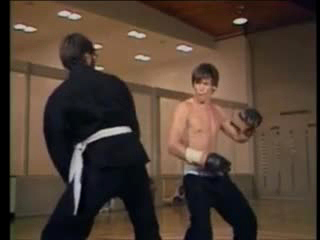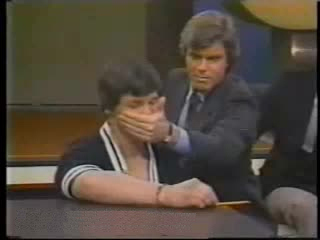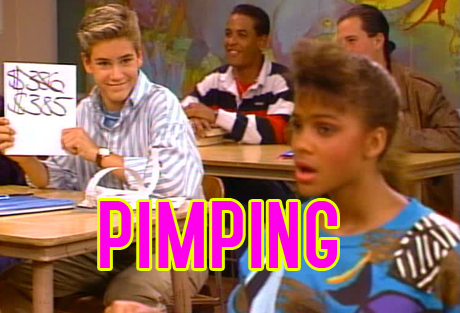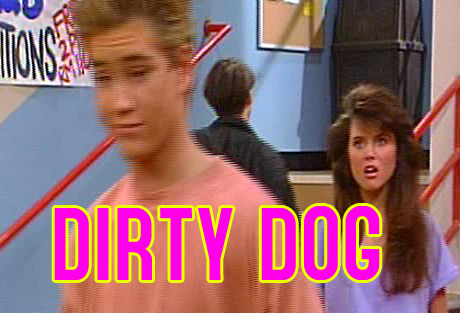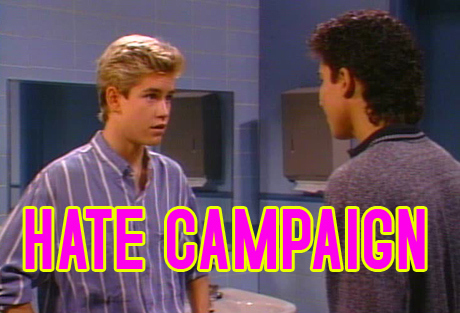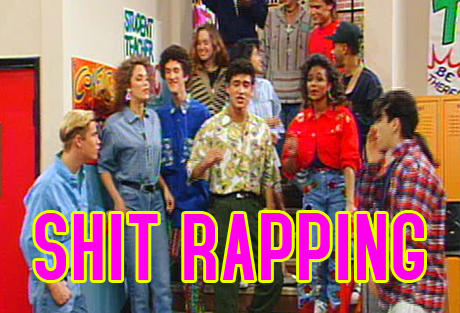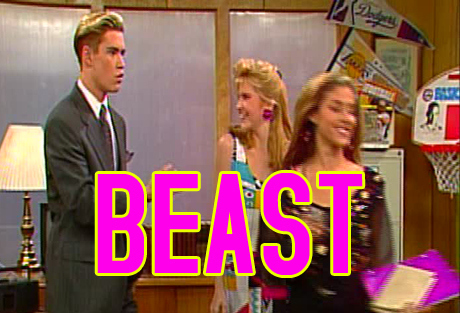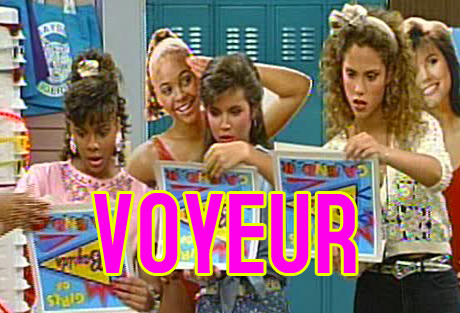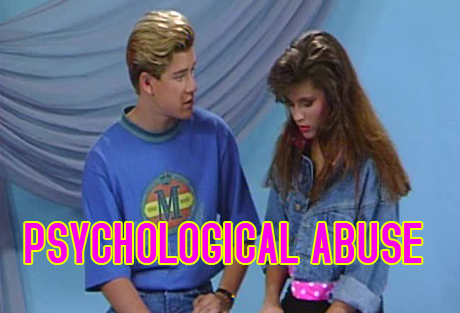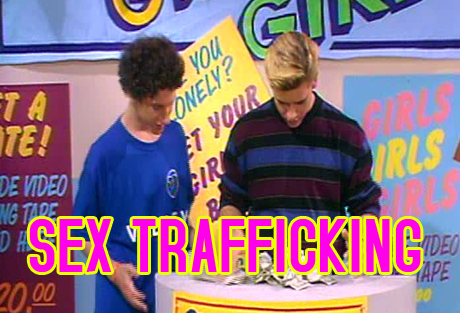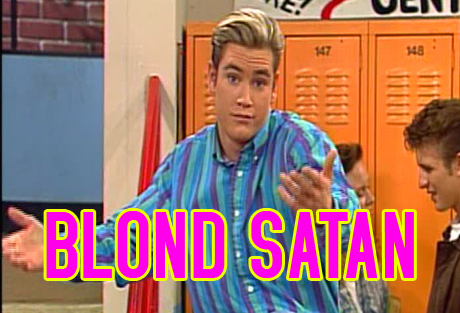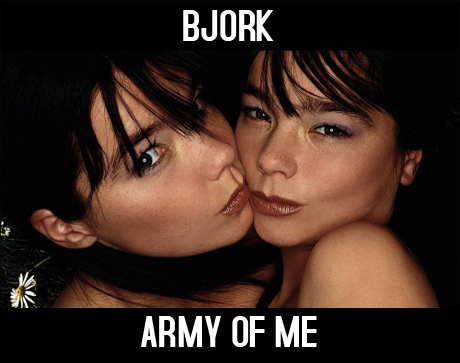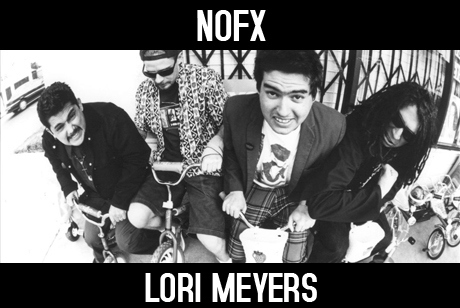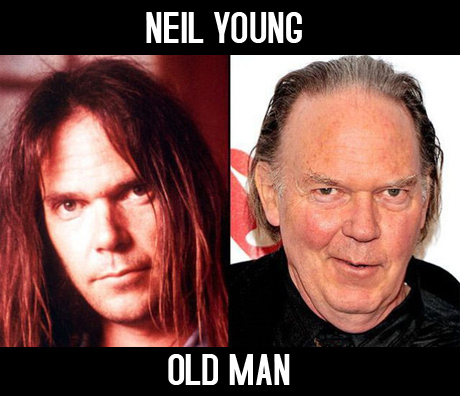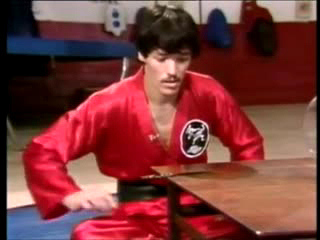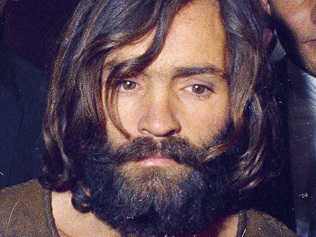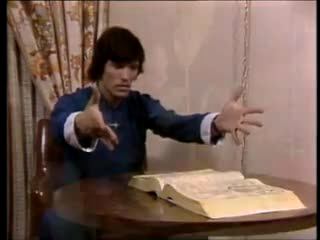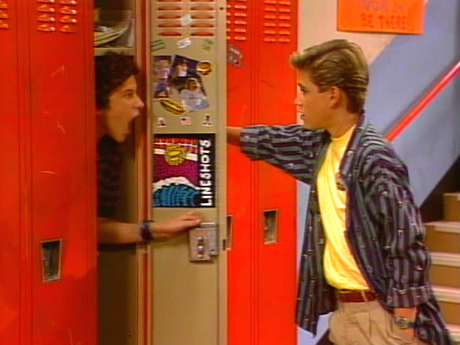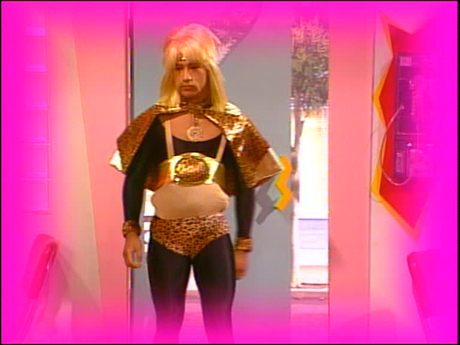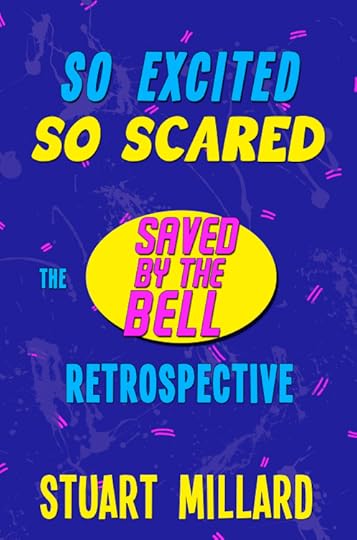Stuart Millard's Blog, page 30
June 16, 2015
James Hydrick Speaks — Part IV
This is the final part of my interview with James Hydrick, his first in over thirty years. If you landed here without reading the previous entries, here are the links:
…
— In the way you looked up to, and were inspired by Bruce Lee, were there any magicians that you admired, growing up?
My first teacher of magic was Harry Blackstone Jr., the son of the great Harry Blackstone Sr. I met him when I was a youngster at a county fair and caught him doing the French Drop and other sleight of hands. He thought that was pretty good, and as a reward gave me a box of magic tricks with cards, scarves, and so on with an instructional manual. That box became my inspiration to magic. I practiced those tricks by myself and on others thousands of times while growing up in orphanages and foster homes in the deep south.
The second role model was Harry Houdini. I saw his movies to learn the tricks and became especially adept at the handcuff escape from anywhere… even underwater. I practiced holding my breath for long periods until five minutes underwater became routine, and my timed record was six and a half minutes.
The third and fourth inspirations were both oriental martial artists. Sho Kosugi did ‘Ninja’ movies that combined illusion with martial arts, and then Master Zen converged the two disciplines into one show. That’s what I wanted to do on stage.
The fifth magician I admired was James Randi. He had strong illusion skills and treated me fairly. He bragged about me that ‘No one from such a poor upbringing has ever so cleverly taken simple things around him to perform stage magic that deceived the audience.’ Randi encouraged me to become a professional stage magician.
But where these magicians made money from it, my goal was to generate martial arts students to generate income. My first love was always martial arts.
— As far as I’m aware, the air current illusion had never been performed before you did it. What first made you think of it, and how long did it take before you perfected it to the point people couldn’t tell it was a trick?
I learned the breath illusion in LA County Jail while housed in cell block 2904 with the Alphabet Bomber Muharem Kurbegovic. We were the only ‘red bracelet’ prisoners on the tier with the security of one body guard. Kurbegovic used to talk constantly, or yell in the night, and he read scripture. One day I got bored listening to him read scripture and took a deep breath, and exhaled it. The bible pages in his hands moved. It was an accident, but I saw the potential.
I practiced for a few days until I could direct my breath to move the pages, pencils, and other small objects without being detected. After I got transferred out of 2904 back to the general population, I used the breath illusion on other prisoners and the guards. When I asked an inmate to hold the bible and concentrate hard on believing, he’d try, and suddenly the pages started fluttering in his hands. He turned white and got religion. I probably had more converts than the jail chaplain. I continued to practice this and other illusions in jail to ‘reinvent’ myself for release. I had a plan to combine the magic with martial arts to have a show to draw students and make money so I wouldn’t return to jail. It worked.
— During the taping of That’s My Line, before they brought out James Randi, you appeared to struggle with the pencil illusion, and it was said that it took you 40 minutes to flip the pages of the phone book. Was this to sell the idea you couldn’t work on cue, once Randi’s conditions were later put in place? Or had you been working on your showmanship since the earlier appearance on That’s Incredible?
I hadn’t met Randi before the That’s My Line show, and sure didn’t know what conditions he was going to throw into my breath illusion act. I took the stage before Randi’s conditions were put in place, and took about 40 minutes studying the setup from every possible angle. I walked around, thinking what Randi could possibly impose on the act. Would he hide a microphone, a close-up camera of my face, intense lighting, a mouth mask, or what? After I was satisfied, I went ahead and made the pages move. The purpose of the delay was to learn the setup, but there was a little showmanship thrown in too.
I love performing. It may be that I missed the attention as a kid unless it was my dad beating me or stepmother burning holes in my skin with cigarettes. My showmanship has two angles: I know how to make something appear real, and I can read people. If there is a flaw in the peoples’ perception, then I can create an illusion to put in it, and make it appear real. I can lasso the moon if you want me to.
— Did you go in to the That’s My Line taping thinking you’d take home James Randi’s prize of $10,000? And how much pressure did this add to your performance?
I always look forward to performing, and once on stage enjoy it. When I appeared on That’s My Line it was to draw students into martial arts rather than win the $10,000. I had plenty of money, but knew that of that the national exposure could generate thousands of students to make even more money than the $10,000 prize.
The ten grand didn’t make me nervous at all. James Randi used to comment on how well I performed under pressure, but there really wasn’t any because I enjoyed showing my magic.
— Can (and do) you still perform the pencil trick?
I rarely use the pencil trick any more. It’s like, who wants to see the old news? My technique for it was a simple martial arts breathing method while distracting the audience with hand gestures in order to blow and create an air current that moved the pencil.
— And are you still surprised at how easily people want to be fooled?
People don’t really want to be fooled. They want to be entertained, or to have an excuse to be talked into something. My illusions are icebreakers. People don’t want to be fooled. They want to know: Who am I? Why are we suffering and having wonderful experiences? Why am I here?
…
For more information about James Hydrick, and other, similar tales, check out my book, Smoke & Mirrors and Steven Seagal.
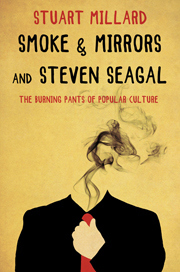
Smoke & Mirrors and Steven Seagal on Amazon UK
Smoke & Mirrors and Steven Seagal on Amazon US
Amazon’s free Kindle app for phones, tablets, and computers


June 2, 2015
James Hydrick Speaks — Part III
Click here to read Part I of James Hydrick’s first public interview for thirty years.
…
— With your fame and martial arts skills at the time, did Hollywood ever come calling for possible roles in film or television?
Hollywood came knocking a few times after my early shows. After the Korem show, Warner Brothers came and I signed a one-year contract and got a $4,200 advance for them to do my story on television special. They had the option, and were to pay me more monthly… but nothing happened. Slim Pickins was to play my farther in that one, but it aborted.
Then, in about 1985, I was in Atlanta. An offer rolled in from New York, I think from Motown. They did a few hours of audio recordings, but I wouldn’t allow video. It was to be a TV special that never happened. There was also another try by Michael Ovitz who was the agent for Steven Seagal. Michael used to say he could turn anyone into a movie star. It had had been my dream ever since as a youngster watching Bruce Lee with my dad when he was on the chain gang in jail. I was introduced to Michael by Ed Parker, and they were setting up a movie about my life, because Ed Parker was fascinated by it, but it never got past the planning stage. Ripley’s Believe It or Not featured me in a segment.
Two years ago, the New York documentary company who did the James Randi film An Honest Liar filmed 3 1/2 days of me at Coalinga for a James Hydrick documentary. That film is in the making, and they’re just waiting for more funding. My biographer, Steven Bo Keeley, is the consultant to that movie, and our book should be out within a year.
— How many students did you have training under you at the dojo at your peak?
I had 3,500 students training under me in martial arts in ’80 – 81 at Salt Lake City. It was the largest martial arts studio in the free world. About 10 percent were female, and the rest guys. It was mostly adults and a few youngsters. The majority were from Utah with about 10 percent from out of state and 5 percent from other countries like Brazil, Canada, and Israel. I tried to take people who were already advanced in martial arts, so it was a high quality group. There were three classes a day, morning, afternoon and evening, plus individual instruction.
— What happened with those students immediately following the Korem film? Did you speak to any of your classes about it, and if so, how did they feel?
Korem didn’t damage my martial arts program. People don’t care about illusions when it come to martial arts. However, Korem did damage my rep as a stage illusionist. He scripted and edited that show to promote himself and put me in the worst light as a magician. I used magic to get more martial arts students. I didn’t teach magic at the school, but consolidated martial arts with illusion to generate more martial arts students.
— Years after the Korem show, you reappeared on an episode of Sally Jessy Raphael. How did this come about?
Korem called me after his show and asked me to appear on Sally Raphael. They gave me a $3,500 appearance fee. I didn’t know particulars of what would happen. When I got to the show I was seated in the audience and thought it was a little strange. When the cameras started a guy next to me jumped up and said, “James Hydrick is sitting next to me.” The cameras swung to me, and then someone recognized Danny Korem in the audience. The cameras swung to him, and then back and forth. The discussion was minimal, and Korem used the Raphael show as a confirmation of his little victory in his earlier show.
— And were there any other less well-known JH TV appearances?
Dimension Five with Ed Jakes did a 30 minute piece on me in 1980 on KSL channel 5, the big news station. That was my debut. There was That’s Incredible, the Danny Korem show, and That’s My Line.
Ripley’s Believe it or Not did a segment saying, “How can a terribly abused kid with a third grade education use a nine inch pencil in a clever display of illusion to become the world’s greatest psychic?” Paul Harvey talked about me but there was no interview.
— Is there any truth to you being sought out as a figurehead for various cults? Or do you think Danny Korem was trying to portray you as more dangerous, like a possible Charles Manson that had to be stopped, to make his ‘exposé’ seem more important?
No one ever sought me out as a cult leader. I never introduced anyone to a cult and wasn’t asked to be in one. I don’t know how that rumor came about, but can guess. When I was living with my biographer Steve Bo Keeley in Salt Lake and just getting my dojo going, there were articles in the Mormon newspapers about how my illusions might come from the supernatural. Bo Keeley’s brother, a minister, saw these and contacted Danny Korem in Dallas asking him about it, since Korem was a Christian and a magician. That’s how the Korem show came about. That’s probably how the talk of me being a part of a cult got started. Again, I wasn’t part of a cult, and the people who came to my dojo were there for martial arts or to enhance their performances in professional baseball, boxing or other sports.
Danny Korem painted me as a villain, when he knew I wasn’t a villain. I was a young man with an abused childhood and a third grade education, and he was a slick illusionist. He took away the only thing I had, the chance to crawl out of the literal hole I came from. I’ll tell you something that will sound strange, but is true. I was tied to a tree with the pigs and dogs and forced to eat their food. I was molested by my step-mother, chained to my Dad’s steering wheel at nights when he bounced at bars, and raped repeatedly before I turned ten. That was the hole I was trying to crawl out of, and Korem took it away from me.
Korem didn’t like that I said things come from the mind as well as from illusions. Possibly he was jealous. James Randi encouraged me, and said ‘You are good. Keep going, kid‘, but Korem tried to discourage me. Randi wrote Korem after the show, and it’s a matter of record, that Korem committed a serious crime of morality on that show. But I retained my reputation as a martial artist and became successful.
…
In the upcoming Part IV, Hydrick talks about those famous TV appearances, how he developed the page-turning trick, and facing off against James Randi and his $10,000 challenge.
For more information about James Hydrick, or other, similar tales, check out my book, Smoke & Mirrors and Steven Seagal.

Smoke & Mirrors and Steven Seagal on Amazon UK
Smoke & Mirrors and Steven Seagal on Amazon US
Amazon’s free Kindle app for phones, tablets, and computers


May 28, 2015
The Ten Most Sociopathic Acts of Zack Morris
This is material adapted from my book, So Excited, So Scared: The Saved by the Bell Retrospective, in which there’s about 160,000 more words about Zack and co. More info at the bottom of the post.
…
With Lisa running up a huge bill of $386 on her dad’s credit card; which may not seem like much, but I can assure you, in 1989 was enough to fund an entire space program; the kids need to make some fast buck. Zack’s plan? Pimp her out. For a dollar a pop, Bayside’s horny nerds purchase tickets entitling them to a kiss from Lisa, who’s neither been made aware of the flesh-sale, nor given her permission.
Consequently, Lisa; a girl who’ll increasingly go onto demonstrate signs of PTSD from years of Screech’s protracted stalking; spends the lesson shrieking with fright and fending off the molestations of Zack’s customers. Of course, Screech buys a fistful, and at a later clothes auction, purchases some Lisa-worn lingerie, proudly announcing that he’ll sleep with it every night.
And FYI, Lisa’s father is called Dr. Turtle, which sounds like a desperate pitch by a cartoon exec who’s one more failed pilot from having security carry him into the street.
Zack and Kelly; history’s greatest ever love story, right? Not so much. In reality, Zack and Kelly (or, if you’re a shipper, Zapowski) are a valuable case study into abusive, controlling relationships. This is the Zack who so felt entitled to ownership of Kelly, that he once entered a dance contest to stop she and Slater pairing up, purely because he didn’t want Kelly and Slater’s names touching on a trophy. Their names.
Though this is far from his worst Kelly-based behaviour, regard the moment that he finally tries to nail her down as his property by popping the big one; “Wanna go steady?” By the time Kelly’s finally made up her mind, Zack’s caught sight of the hot new school nurse, and cruelly blows off Kelly’s yes with a none-more-cold “that’s great; so what was the question?” before literally strutting away.
Later, realising that won’t stop other guys from touching ‘his’ Kelly, he tries to sell her on the wonders of an open relationship, leaving him free to hit on Nurse Jennifer, and Kelly some gross, Screech-picked nerds. What a Romeo!
Before Zack and Kelly hooked up, Slater was the big man. He had the muscles and the driving license, and every scene featuring Zack and Slater saw them sword-fighting their dicks over the Kapowski-shaped trophy. When Slater’s army-man father gives his son the option of moving to Hawaii, Zack sees this as his chance to get rid of his rival, and move in for the kill on Kelly. But how to convince Slater to ditch Bayside? Tell him how great Hawaii is and what a wonderful time he’ll have there?
Nah. Zack tells the girls that Slater’s dying of a rare disease; Mumbioquadralationosis, a fatal brain disorder. The only clinic that can treat it is in Hawaii, says Zack, but Slater loves his friends so much, he’d rather be with them, even though it’ll kill him. The only way to save his life is to let him know that he’s not wanted, and that everybody hates him, so that he’ll leave. “If you care about Slater at all, treat him like dirt.” Jesus, dude.
A full-fledged piece of cruel theatre, the entire gang bully Slater with cutting insults like pea-brain and brillo-head, making it clear that nobody wants him around, causing smelly dumb jock dunce Slater to storm off, yelling that he hates this stupid school. A triumphant Zack basks in the glow of a successful hate campaign, as a forlorn Slater, his self esteem systematically broken by everyone he cares about, announces that he’s moving to Hawaii. In the end, he doesn’t. But with a bff like that, he really should have.
It’s no surprise when a class on subliminal messaging perks up the interest of Rapex Predator, Zack Morris, who’s like those PUA creeps with no sense of boundaries who buy a teach-yourself-hypnotism book thinking it’s the magic key to making girls drop their knickers.
In Bayside’s own MKUltra, via a series of tapes more disturbing than those of David Parker Ray, Zack sets about mind-molesting the chicks of Bayside, entirely for grubby sexual purposes. First testing that it works by subliminally brainwashing hot girls into making out with some grotesque, hover-hand nerds, whom the girls slobber all over and call “master,” he then plants hidden messages into Kelly’s Bo Revere album. Roping perennial perv-case Screech into the deal, he triumphantly proclaims “Kelly and Lisa are gonna be ours forever!”
And indeed, it works, until Zack’s scam gets twigged, and as revenge, the entire school pretends to be in lust with him, as he’s chased through Bayside’s halls by his fellow students, a sixty-something teacher, and Mr. Belding, all faking The Thirst for laffs, because the sort of brainwashing of female victims that’d make Charles Manson proud is nothing if not chucklicious.
When movie hunk Johnny Dakota randomly rocks up to Bayside, Zack’s desperate to buddy up to him, figuring Hollywood celebs are always surrounded by beautiful women with low self-esteem. Zack did some terrible, terrible things to push himself onto girls over the years; like abusing his responsibility as a helpline operator in Teen Line — where the desperate and alone could bravely confide in the untrained, unqualified schoolkids about such topics as CHILD ABUSE and SUICIDE PREVENTION — to ask out the first girl who called in for advice. Although, he later found out she was in a wheelchair, and behaved like a Ricky Gervais character confronted with the social minefield of a black person (“We don’t know how to interact with them do we guys? Guys?”).
In comparison, his actions in No Hope with Dope may seem like a minor crime. Not true. Look at the state of the rap he uses to lure Dakota into shooting his anti-drugs commercial at Bayside; a rap so white, it moves beyond the visible colour spectrum.
“We’re Bayside students, and we’re no fools,
We don’t use drugs, ‘cos they’re not cool,
So if you get the offer,
Make sure you refuse,
When it comes to drugs,
Just. Don’t. Use.”
It’s the worst thing to happen on a staircase since the fuck scene in A History of Violence, and all because Zack wants a little of Johnny Dakota’s casting couch overflow.
Half the stuff Zack pulls is straight out of the Jimmy Savile playbook. As the King of Bayside, he can do whatever he wants — albeit as a teenage boy Mary Sue whose victims are only too happy to be sleazed on, leered at, and groped — but how will he act while sat atop the actual throne of authority? If your answer is “like Joffrey with a permanent throb-on,” then you win.
During Student Teacher Week, the worst motherfucker in Bayside’s history gets made acting principal, with all the powers and responsibilities of Mr. Belding. With free reign to do whatever he wants, Zack announces that his top priority is to “enlarge the peep-holes in the girl’s locker room.” So far, So Savile.
In Principal Morris’ office, now decorated with basketball hoops and posters of Salt-n-Pepa, LL Cool J, and Guns N’ Roses, this former hub of educational authority has been transformed into the headquarters of a hedonistic warlord dictator, ready and willing to bleed dry the resources of his island nation. And bleed it he does, calling in two hot, blonde students over the speakers, and tutting knowingly that their records say nothing about boyfriends. Sure, they’re giggling now, too afraid to speak out, but once he’s in the ground, the victims will finally find the courage to talk. In their thousands. How’s about that, then?
Put in charge of the never-before-mentioned school store, Zack turns around business by selling girly calendars, featuring voyeur snaps of his female ‘friends’ in their swimsuits, taken via Screech with a long-lens at swim practise. Like something from Reddit’s infamous Creepshots forum, they’d fit right alongside your shoe-tying downblouse, or sneakily-snapped Starbucks sideboob. It makes me uncomfortable to imagine how Zack Morris would have abused the era of smartphone technology, as the show is littered with ‘cheeky’ references to shower peepholes or periscopes, and he’s not above bugging the bedrooms of his female buddies.
The success of the calendar attracts the attention of Adam Trask, a grown man who wanders into the school looking for the 15-year-old schoolgirls he saw in a set of hidden-camera swimwear photos, and it’s all just fine. Trask, who has the look of a snuff photographer, is editor of Teen Fashion Magazine, which sounds like a periodical that counts Ian Watkins among its subscribers, and is moments away from having its offices raided by the FBI. Incredibly, Zack still manages to be the sleaziest bad guy of the episode…
After setting up a photoshoot in the school, during which a power-suited Jessie shakes down her hair like a secretary gone bad, and Adam Trask hoots “Yeah! School’s out!”, Trask announces he’s whisking Kelly off to Paris for a month to live with him on a yacht, unchaperoned, while he takes pictures of her.
Zack is appalled, and vows to stop it. Not because she’s clearly being nonced up, but because she’ll forget all about him when she’s gone. His plan involves the kind of abusive, manipulative behaviour there are full-blown advertising campaigns warning against nowadays, first by alienating her from all of her friends, who she’ll be letting down if she abandons them for Paris. Poor Slater will have no partner for his science project, while poor Screech has cancelled his birthday, and the poor swim team will definitely lose their upcoming meet without her. How can Kelly be so self-absorbed?
Then it’s time to paint himself as the only one she can trust; the only one who cares; by telling her he’ll invite all her friends to a farewell bash. But then he tells them that Kelly doesn’t want them there, and shows up alone, informing Kelly that her friends didn’t want to say goodbye to somebody so selfish. She’s heartbroken with the guilt of what an awful person she is, but when Zack owns up to all the lies, the years of controlling psychological abuse have eternal victim Kelly misinterpret his actions as a grand, romantic gesture, because he wouldn’t have done it unless he’d cared, right?
Selling Lisa’s body to his classmates was freshman hijinx compared to the outright sex-trafficking of Video Yearbook. Using the footage he shot of Bayside’s female students while making the titular yearbook, Zack has Screech edit together a dating tape. Lonely fellas; like what you see of these unsuspecting, underage teenage girls? Then here’s their phone number, so why not give them a call?!
Zack rakes in the cash selling the tapes all around the city, but being Bayside, the girls are all thrilled to be getting hundreds of phone calls from strange, almost-definitely-masturbating men at all hours of the day, setting up dates that’ll end with the discovery of their broken bodies inside a dumpster behind a Wendy’s. What could be more flattering?
Eventually, they do manage to be conjure up some slight umbrage at Zack for literally pimping them out to LA’s pervert community. This causes him to address them from a TV via an ‘apology’ video, during which falsely pretends to be leaving Bayside forever, while secretly in the room watching their reactions, disguised as a lady, in the assumption they’ll fall to their knees and weep. You know, like all meaningful apologies.
As graduation looms, Zack finally realises what everyone’s known all along. When he leaves Bayside, his legacy will be that of the biggest monster to have ever walked its halls. As the senior year decide to write a new school song as a parting gift, Zack sees this as his chance to make amends and be remembered for something decent. But what better way to cement his name than with sole songwriting credit?
School Song sees Zack Morris at his most duplicitous; tempting Jesus in the desert with a sugary Ecto-Cooler; as he sabotages his friends’ efforts, turning them against each other, while we’re made unwillingly complicit by his constant fourth-wall asides, with one in particular that’s pure Devil in its acceptance, finally, of who he is.
“Now I know this seems pretty low, but if I wanna be remembered as a great guy; can’t take any chances.”
He tinkers with the piano, poisons the others’ minds until they’re not even speaking, and when facing a vote-off against Screech’s song, invites nerd-girl, Louise, to dinner — an act played as comically vile, with watchers dry-heaving, because she’s wearing glasses; gross — and bribes her with a kiss (while holding in the vomit) to get the nerd voters on his side.
“No-one wants to be remembered as the school’s biggest goof off,” he says, downplaying the far worse truth of a sociopathic, career sex-pest.
…
So Excited, So Scared on Amazon UK
So Excited, So Scared on Amazon.com
Amazon’s free Kindle app for phones, computers, and tablets


May 20, 2015
Yet Another 3 Songs That Could Make Awesome Movies
I guess this is the third part of a trilogy. I wrote about this for the first time in 2010. And again in 2012.
Here’s another 3 songs that Hollywood would do well to adapt into movies, while chucking a dump-truck full of cashmoney at me for being such a gosh-damned creative goldmine.
And if you complain once more
You’ll meet an army of me
I don’t normally suggest casting the original singer, but Army of Me would star the actual Björk, as a downtrodden, socially conscious programmer in a high-tech bio-science lab. Her co-workers are obnoxious, and her boss is boorish, with archaic and questionable ethics on how to use their technology. Luckily, he’s about to retire, and Björk is confident she’s got the qualifications to be hired as his successor and take the company in the right direction. That night, as always, she fills the silence of her home by watching the news, horrified at all the injustice — the underclasses; those without a voice; used and abused by the people in power — and wishing there were some way she could help.
She’s passed over for promotion by a braying bell with a bad resume, but a strong line in leering patter, and left to watch as business-bros in lab-coats slap each other’s backs. They don’t even leave her a slice of celebratory cake. With that, Björk snaps, and marches down into the cloning lab, where she creates a dozen instant-growth copies of herself, which go rampaging through the building, exacting revenge by trashing the place and throwing people out of windows.
Stand up
You’ve got to manage
I won’t sympathize
Anymore
Björk uses these clones to help her build even more clones; hundreds of Björks, rolling off the production line like classic American cars. As one, they storm out of the lab into the city, where the Björk Army, led by their original, turn their attention on the system; the fat cats, politicians, and corrupt, racist police; where they’ll burn this motherfucker to the ground. Army of Me ends on 10,000 Björks marching to the White House (or Downing Street), armed with sticks, rocks, and Molotov cocktails.
You’ll meet an army of me
Casting:
Björk — Björk
Lori Meyers used to live upstairs
Our parents had been friends for years
As in the song, from 1994’s Punk in Drublic, the first our protagonist sees of Lori Meyers, since they were childhood friends many years ago, is a familiar birthmark, which he spots while hunched over the glare of a monitor, with his trousers round his ankles. As he rushes out of the front door to his filthy apartment, to save his old friend from the horrible pornstar life she’s gotten dragged into, our hero leans across the hat rack and grabs his trusty fedora. Yes, resplendent in leather trenchcoat, and neck shrouded in patchy stubble, the Mountain-Dew-chugging, hand-kissing Nice Guy sets on a quest to rescue m’lady, and, he hopes, win her heart in the process, having carried a torch all these years.
Lori Meyers would be a modern, feminist take on Paul Schrader’s Hardcore; where an appalled George C. Scott toured the sleazy underworld of back-room pornography to track down his missing daughter; except with a hoverhand hero who gets nervous when talking to girls, has an anime schoolgirl as his Twitter icon, and accidentally fills his pants with jizz when meeting a hot cosplayer. Finally, after bribing a camgirl with bitcoins for information, he tracks Lori down.
Who the hell are you to tell me how to live my life?
You think I sell my body; I merely sell my time
Living in a nice house and studying for a degree, she doesn’t see him as the brave white knight coming to unrope her from the train tracks with the replica samurai sword that hangs above his computer desk.
I know what degradation feels like,
I felt it on the floor of the factory
where I worked long before
In a film that’s worth making just to anger the Meninists that got Mad over Max, Lori rebuffs her wannabe saviour, and we end on him sat in the gutter outside her house, and with a sigh, exclaiming “I guess I just got friend-zoned again.”
Casting:
Nice Guy — John Bradley (aka Samwell from Game of Thrones)
Lori Meyers — Mila Kunis
Old man look at my life,
I’m a lot like you were
Old Man is a simple, stagey two-hander, with a pair of characters having a discussion over a single night. It’s also a time travel movie. Using the method employed by Boyhood, a break in filming of some two-and-a-half decades would feature an older actor playing against a greenscreened, 25-years-younger version of himself. No terrible prosthetics or uncanny valley CG; just young meets old for real.
There’s nothing about using the time machine to go back and kill Kevin Smith in the womb, or to win the lottery and live like a rapper; it’s purely a meditation on the one thing none of us can avoid (unless we die young); growing old. Facing that here is unavoidable, as the younger man literally looks who he’s going to become right in the weathered face.
I’ve been first and last
Look at how the time goes past.
But I’m all alone at last.
Rolling home to you
The pair talk long into the night, with the older looking back on the mistakes he’s made — and seems fated to make again and again — but settled in who he is, while his flightier, arrogant, younger self believes nothing is set in stone, and besides, the older him has horrible taste in music, so what does he know?
Old man look at my life,
Twenty four
and there’s so much more
Eventually, as the sun starts to rise, calling an end to their meeting, talk comes down to a person’s life’s experiences, good or bad, shaping who they are. If we could avoid or undo the negative moments, if we could sidestep all the heartbreaks, regrets, and mistakes, who would we be?
Love lost, such a cost
If this went into production today, I’d be in my sixties by the time it came out, and doubtless filled with so much suffocating regret of my own that it would be too painful to watch anyway, so I’d go and see the Twilight remake instead.
Casting:
Old/Young Man — Much as I despise his try-hard antics, I think it’d be interesting and meta to see Shia LaBeouf face down his younger self in 25 years. It’d likely be the ultimate in “boy, I was a prick when I was a kid. I thought I knew it all…” and most probably a return to the screen after many, many years in the wilderness.
As always, your suggestions please in the comments, on any more songs that would make for awesome movies. And if you dig my pop culture stuff, you’ll probably like these books I wrote.
Smoke & Mirrors and Steven Seagal
So Excited, So Scared: The Saved by the Bell Retrospective


May 17, 2015
James Hydrick Speaks — Part II
If you’re new to this, then head over to Part I. And for more on James Hydrick, and similarly fascinating tales, check out my book, Smoke & Mirrors and Steven Seagal.
Here’s the second, exclusive part of James Hydrick’s first public interview in over thirty years.
…
— There’s a story about you being extradited back to California, and freaking out the guards by violently rocking the prison van with your powers. What do you remember about this?
In the vehicle rocking incident, I was being extradited back to California in a van that was designed for 6-8 people. They had 23 of us crammed in the back, and having studied law, I knew it was illegal. It was also uncomfortable. I whispered to the others to start rocking the van by shifting their weight. I mean, they got that van going back and forth teetering on two wheels at a time down the highway. Meanwhile, I fooled with the officers’ minds. There were six escort officers: two in a lead car, two in our van, and two in a trail vehicle. The van rocked so violently the officers got scared and looked at me gesturing, holding my head, and making like I was causing the movement. It was an illusion. They turned white. They had to pull off the road in Ozark, Arkansas and stop the trip. The trick had been effective to fight their illegal transport. The officers were shaking with fear in Ozark and put me in three leg irons and two sets of handcuffs. I snapped the cuffs in front of their faces, turned my back, and used a little trick to open the leg irons. I turned around, and the sheriff said, ‘Hell, if we can’t cuff him, this jail can’t hold him. Send him over to Johnson County.’ They moved me to Johnson County where I met the great Sheriff Eddy King.
— Related to the previous question, did you enjoy that people still feared and were fooled by your ‘psychic abilities,’ even after your confession?
The intent of my illusions was to generate students for my brand of martial arts. My brand of martial arts was to ‘short cut’ the others, and to combine the best aspects of each discipline to develop the most effective fighting technique. By short cut, I mean to speed up the learning process. I was good at keeping what techniques worked, and discarding the ones that didn’t work. That’s the evolving martial art I taught, taking a bit from here and there, and from many masters and grandmasters.
I consolidated martial arts and illusion, like Chuck Norris in the movie ‘Octagon‘. I never enjoyed fooling people, because I wasn’t trying to fool them any more than a stage magician tries to fool his audience.
Danny Korem edited that show to promote himself, and that stalled my career for many years. I was a kid with a third grade education going into that event, and he was a slick shyster. It’s fair to say he extorted a confession out of me for an appearance fee that Korem never paid, although Randi gave it to him for me.
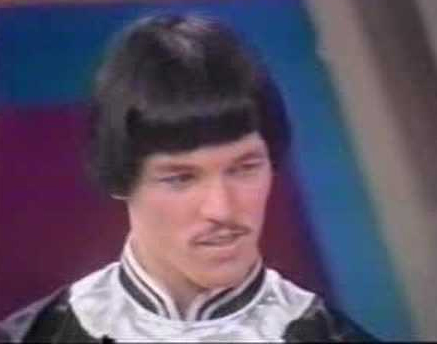
Hydrick as ‘Sum Chai’
— I’m interested in the Oriental affectations, when you first appeared on That’s Incredible under the name Sum Chai, with the bowl cut and outfit. Was your thinking along the lines of Chung Ling Soo, the American magician who famously portrayed himself as Chinese to add credibility to his act?
I changed my name to Sum Chai because the Black Guerrilla Family (BGF) had a price on my head in and out of the LA County jail where I had decked their leader James ‘Doc’ Holiday in self-protection. The influence of the BGF gang was widespread across the nations, with hundreds of thousands of members. They were known for ‘an eye for an eye’ retaliation. So, after I was put in protective custody and eventually released from LA County jail, I used two aliases except with those very close to me; Sum Chai and Zane Leopard; in order to avoid being tracked by the BGF. It was a case of protecting my identity. The origin of Sum Chai was in the LA jail where a Thai inmate gave me the name, saying it was an early Thailand Shaman.
— After That’s Incredible turned you into a celebrity, were you always having to do the tricks for people who recognised you when you were out in public?
That’s Incredible put me in the public’s eye. There was a lot of media following and people sometimes recognized me wherever I went. I always gave them autographs and occasionally did a little street magic. But it would have been overwhelming to perform every time I was recognized aside from planned events. I had bodyguards at the time, who didn’t allow me to mingle much. There was still the threat of the Black Guerrilla Family and I had to be careful. The heat from the BGF went on for years, but I always gave autographs for years.
…
In the upcoming Part III, James Hydrick talks calls from Hollywood, and the various projects that almost came to pass, and Danny Korem’s portrayal of him as the next Charles Manson.


May 11, 2015
Charles Manson and the Twenty-Fourth Trimester
I’ve published a pretty decent body of work over the last decade, each of which evoke sense-memories of the periods of my life when they were conceived and written. Frantic Planet: Volume I was my first book. I’ll be honest, I didn’t really know what I was doing, and though it’s crammed with inventive ideas, it’s rough and raw, with a lot of choices I’d make differently now, but it was an exciting time, full of youthful — and quite naïve — hope for where it would take me. Volume II, in hindsight, is me dealing with a lot of issues, which I mostly put behind me once it came out, as part of some weird, unconscious therapy. The Beach Diaries books both happened during particularly miserable periods of my life, but their covers remind me of that rush of churning out pages and pages of new material, rain or shine, based purely on what I’d seen, with every day a fresh, mysterious canvas. And my latest, So Excited, So Scared: The Saved by the Bell Retrospective, was a bruising nine months of endlessly long desk-sessions and thinking about Dustin bloody Diamond, that nearly strained my eyeballs right out of my head. But there’s another book, with the most intensive and debilitating process of all, by far. A book that practically nobody has read.
When I was wrapping up 2009’s Frantic Planet: Volume II, I hit upon what seemed like an interesting idea for a novel, involving “Cheeky” Charlie Manson. Manson is one of the most iconic figures of all time; a wild-eyed shorthand for Evil, and the wicked things men are capable of doing, or of talking the vulnerable into doing for them. For a little while, I went back and forth on the morality of using such a bad bastard as the basis for a story. After all, the victims’ families are still alive, but it was an interesting premise, and my intention wasn’t to exploit the crimes, but to tell a broader tale about belief and control, amid the shifting social politics of the time. In fact, it’s a love story.

Charles Manson
The inherent challenge in using Charles Manson as a character (not the narrator, but with his presence looming over proceedings), is that I had to crack the character of the real, actual Manson. Lots of people have ‘done’ him over the years, in parodies, skits, and bad TV movies, and it always plays as false; finger-paint impersonations akin to putting on a beret and going “Ooh, Betty!” To make it work in a 100,000 word novel, there had to be more depth. Essentially the world’s most complicated man, Manson speaks in riddles and misdirections, all designed to wrong-foot and throw you off. I needed to decode and decipher, to waft away the smoke and mirrors, and look beyond the dozen different personalities he adopts in the course of a single sentence, to find the real Charles Manson, whatever that was. Maybe he’s so genuinely unhinged that there is no real person anymore; just a madman-slash-showman spewing patter like a broken radio. My Charlie had to be believable, but more importantly, I had to be able to see what he was seeing from the inside, and be able to speak, ‘as’ Charles Manson, in a way that would sell the audience on a true ‘what if’ scenario, and not just another spooky prick in a wig and beard.
It’s difficult for me to fully put across just how intense of a period this was; a period that went on for years; far longer than any of my other works. It began with long months of research, encompassing everything from Manson and his antics to the politics and culture of the time period. Many of those months were spent watching and infinitely rewatching jailhouse interviews, trying to break the code; the body language, the visual ticks; to dissect his construction to its component atoms like I’d later do with episodes of Saved by the Bell. The whole time, I was unsure if I’d even write the book. If I couldn’t unravel Charles Manson, then the whole exercise was futile. If I could, then I might really have something. And eventually, at least in my opinion, I did.
Finally feeling like I had a handle on him, I completed the first draft in nine months, working into the small hours, where I’d go to bed and vividly dream about it all, before getting up to start again the next day. Luckily, there’s a ton of footage and material out there, and like brainwashees of a sex cult, I began each writing day strictly subjecting myself to at least an hour of his taped rhetoric before putting fingers to keyboard. Some days, I’d listen to The Beatles’ Helter Skelter on a loop for hours, like they did at Spahn Ranch, when Manson thought it was a secret coded message calling him to ignite an apocalyptic race war. Others, I’d be stalking around the flat, talking Manson-gibberish and using his mannerisms as I hacked out ‘his’ thoughts, in what likely resembled little more than an “Ooh Betty.” He was all I thought about, awake or asleep, whatever I was doing. Charles Manson. Charles Manson. Charles Manson. Like an unrequited love whose name sits on your tongue, and whose face you see in your dreams and on passing strangers in the street, he was always there.

Charles Manson
In getting to the latter chapters, where he moved from the background into the spotlight, to reel off pages and pages of monologues, I increasingly began to feel like some Manson/Millard hybrid, having to mentally keep the plates spinning twenty-four hours a day, so I didn’t lose the voice. At that time, I couldn’t have lost it if I’d tried. It was coming out of me like automatic writing at a Victorian séance. Though the first draft took nine months, at a certain point, the character clicked into place and slid down over me like putting on a uniform. Consequently, While the first 50,000 words took 8 ½ months, the second 50,000 were bashed out in a manic, almost frighteningly-prolific three weeks.
As the lengthy editing process went on, I was constantly getting irritated by my own obsession, which was obviously unhealthy. But it was all cool, because I knew I’d be able to let it go once the book came out, and release him scuttling from my skull into the wild, like all the other characters I’ve given voice and action to, and go back to normal. All projects are party to similar, albeit much less intense focus, which is why release-day is so cathartic, as you can finally move on to the next thing. Plus, I was sure, so sure, that this was it. This was the one. No more cursing the mistaken romanticism of the starving artist. This would be the fabled ‘big break’ you hear about, and was, I was convinced, my masterpiece. The one I’ll be remembered for. The one that would solve all my problems, because I’d put everything into it, but it would have been worth it in the end.
The book never came out. I never got to push my Charles Manson out into the world. I never got to let him loose. One of the first rejections I got, from a big publisher, had a lovely note attached. You’re always told there won’t be any personal correspondence, but they’d taken the time to implore me to keep going, despite the knock-back, because, they said, I’d really hit on something special, and like a girl who tells you that someone will love you back someday, just not her, there was a home for it out there, I just had to keep looking.
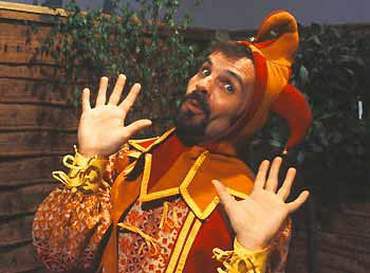
Charles Manson
I did, but there wasn’t. Even in the couple of years between conception and the final draft, the publishing game had changed, and digital chancers like me, with our 70% Kindle royalties, button-click ‘indie publishing’, and full creative control, had toppled the publishing industry onto its back, where it lay wheezing. Now, all anybody wanted was 50 Shades-style erotica, or young adult fiction they could pitch to tweens. Or maybe the book was just shit. One such rejection, after requesting the full book, turned it down on the basis there was “too much bad language,” presumably, during all the murders and drug-binges, and the scenes involving one of history’s most famous monsters, bringing to mind the gangster scenes in Eastenders, where Phil Mitchell jams a gun into somebody’s temple and threatens to “flippin’ well kill ya, you bloomin’ nit!”
The 2012 Beach Diaries, collating how I spent my time that summer, as well as my own mental state, has a running sub-plot where I’m emotionally ground down into the dirt by the constant volley of rejections, from a list of prospective agents and publishers that gets shorter with each No. For two years, I carried a printout of the book around in my backpack everywhere I went, like a penitent monk lugging a giant punishment-rock, just to remind myself that it existed; that I still hadn’t found a home for it; as though the physical weight of it would force me to continue until I’d unburdened myself. By that point, I’d been living with it for three years. I literally emptied out my bank balance with the cost of printer ink and postage, which adds up a lot quicker than you think when you’ve got cock-all savings. My eggs were all in one Manson-shaped basket; and all the time, he was still there too; this 5’2” murderous jester, holed up in the back of my brain.
Now it’s six years since I scrawled the first germ of the idea into a notepad, and it lives on only as this unbirthed baby, with the face of an elderly man, squirming and kicking inside of me. Eventually, I took it out of my backpack. By then, it was tatty and torn, having turned from my masterpiece; my saviour; into a ragged symbol of my own failure and waste. Whatever feelings the other books may elicit, this one brings a raw sense of loss; feelings repeated whenever the man himself gets a mention somewhere, like seeing the one who got away smiling and radiant in a bridal gown.
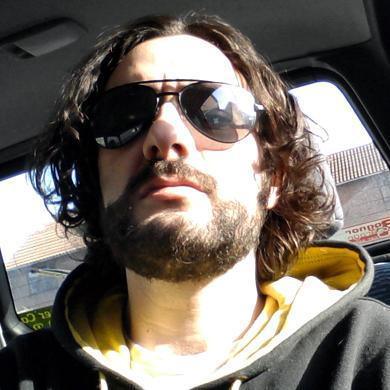
Charles Manson
The first couple of years following, it was hard to shake, and lingering remnants of my artistic obsession; of things I still had to say about it and him; bled out into other projects. I wrote a spec screenplay based around a Manson figure in the Old West, and another with an early 70’s setting and allusions to the then-ongoing trial. His name crops up, here and there, in most of the things I write, or conversations I have, having spotted some connective thread, either real, or projected on my part. I still get that instinctive heart-skip of recognition when I suddenly see his face or hear his name in the news, like catching sight of a friend or family member, and thinking “Wow, I know them! What are they doing on TV?!” Of course, I don’t know him. Not really.
And for those who’ll ask, self-pubbing isn’t going to happen, as the legality of using a real person as a character is the greyest of areas, even differing from country to country, and I’m not going to shoulder that myself. Maybe some day, there’ll be a home for it. Preferably in a 10-episode adaptation for HBO.
Though the frustration of intensely focussing on one thing for years, a thing which you’re incredibly proud of, only to have it rot, unseen, is part and parcel of being a writer, that ache probably never goes away. As for Manson himself, it’s only really in the last year where it’s finally begun to shake. As time goes on, the Lost Manson Years slightly dull with each new project. But whatever I’m working on, much like the real one, my Charles Manson is still there, locked away, and dreaming of the day he might be released to cause some mischief.


May 3, 2015
James Hydrick Speaks — Part I
You may remember a previous piece by me entitled Fifteen-Minute Messiah, about the incredible, and sadly-forgotten story of James Hydrick, the page-flipping Kung Fu psychic, turned man-no-prison-could-hold, who fooled the entire world, at least for a while, back in the early 80s. If you don’t, then familiarise yourself at that link, or check out my book, Smoke & Mirrors and Steven Seagal, which features that, and similar stories.
A remarkable cross between Bruce Lee and Professor X, the tale of Hydrick’s rise, subsequent disappearance, and muddled mythos has fascinated me for years. Now, thanks to the generosity of a third party, who’s interviewing Hydrick for an upcoming project of their own, I’ve had the opportunity to put a series of questions to the man himself. So right here, speaking publicly for the first time in over thirty years, direct from the source, James Hydrick shares some exclusive insight into this amazing story, and clears up some of the misconceptions swirling about his legend.
…
— Did you have a plan for how far you’d take things had Dan Korem not made his film, or were you playing it by ear?
I had no plan going into the Korem Show. The deal presented to me was another demonstration of my illusions and magic tricks. There was no dress rehearsal. However, early into the show, I caught on quickly that this was about promoting Danny Korem at the expense of James Hydrick. And, when it was over and edited, the show presented me in the worst light. I came off the bad guy and Korem the hero; that hurt my career for years. I just want to say that where James Randi is a clever gentleman, Danny Korem cannot pull scruples out of a hat.
Nothing in the show was premeditated by me. I came into it with a third grade education and strong martial arts skills. I’d had an abusive childhood like you wouldn’t believe; I’m not looking for sympathy. So, I accepted the appearance on the Korem show in ignorance of what was going to come down. There was no script except what Korem had in mind to defame me, and grab the fame for himself. He told Steve Bo Keeley’s brother Tom Keeley, before starting the show, that the goal of the project was to debunk a famous magician.
I never intended to deceive anyone on the show. I used magic that others call ‘psychic abilities’. Korem had two shows going: one while the camera was rolling, and the other while it was off. The things I did on the show were illusion and magic that I’d picked up and practiced hard over the years. I was a pretty fair stage magician, and combined it with my martial arts to make a show. I performed magic to get new students in my martial arts classes, and to pull myself up out of the hole of my childhood. It’s as simple as that.
— In news footage of you from the time, one could squint and think they were watching Bruce Lee. It seems like there wasn’t the time for you, at 21, to become such an adept martial artist. Did you start training young, or just pick it up quickly?
Regarding Bruce Lee: When I was six years old, I visited my father in a jail cell where he was on the chain gang. On the jailhouse television was Bruce Lee in ‘Fists of Fury’ beating up Bob Baker with fists so fast… I just stared, and memorized. I thought, if I can get that fast nobody can beat me again, or beat on my brother and sister. We had all suffered terrible abuse. At first, I practiced martial arts for hundreds of hours in the woods along the Savannah River. So, I’m self taught originally. Then, over the years, I trained with many grandmasters. Ed Parker was like a father to me, and I learned hardly imagined martial arts moves (note: Parker was karate teacher to, among others, Chuck Norris and Elvis). I also trained with Wayne Fray, Brandon Lee, the White Brothers and others. I eventually met Bob Baker, who became Bruce Lee’s historian, and Lee’s family and his wife. It all began with me and Bruce Lee on TV. If anyone tells you you’re a nobody, don’t listen. You can become a somebody. Just put your mind to it. Never say never.
— As your legend started to grow, did you ever hear a tall tale about something you were supposed to have done with your powers that surprised even you?
The most surprising thing to me that grew out of proportion was in Egypt when the big wind came up from out of nowhere. I believe it was a coincidence, but others who witnessed it called it supernatural. I can’t judge, except to say that it happened. The Muslims thought it was supernatural and many of them feared me for it. All this was covered in the news around the world. The Egyptian government wanted to hustle me out of the country before I got assassinated.
…
Part II to follow soon, where we’ll learn the truth of the tale where James Hydrick terrified the police by using his mind-powers to damn-near rock a prison van right off the road.


March 23, 2015
So Excited, So Scared — Screech’s Woman
The following is a sample from my new Kindle book, So Excited, So Scared: The Saved by the Bell Retrospective, which is AVAILABLE TO BUY RIGHT NOW. There are chapters like this on each of the other 85 episodes, as well as detailed sections on the history of the show, what happened next, and a bonus chapter about the Lifetime TV movie. More ordering links can be found at the bottom of this post.
���
Screech’s Woman
���I’m hummingbird droppings.���
This is another episode where I find myself surprised at how labyrinthine the plots are. I imagined a 25-year-old kids show, running at twenty minutes minus the credits, would be a simplistic A-B, easily surmised in a handful of sentences. Not so, and Screech’s Woman reads like an end of the pier farce, with misunderstandings, double bluffs, and a tangled web of lies that ends up strangling its weaver.
After the perversely-tinged antics of the previous episode, what better way to open than on Jessie and Slater’s spunking papier-m��ch�� volcano, which suggestively pukes a bubbling wad of lava from its opening like something you might see on Chatroulette before your finger reaches the F5 key? Said cardboard volcano signals this week’s ticking clock, Bayside’s upcoming Science Fair. We didn’t have Science Fairs over here, and I know them only from chucklesome internet pictures of awkward kids standing in front of displays investigating Moon Babies, or goldfish who’ve been kept in a tank of Pepsi, or positing the question ���Could you poop your butt right off?��� My personal highlight of science lessons was when our real-life Screech turned the gas tap on full blast before lighting it, causing an in-classroom recreation of the end of the Gulf War, and our sudden evacuation through the fire exit.
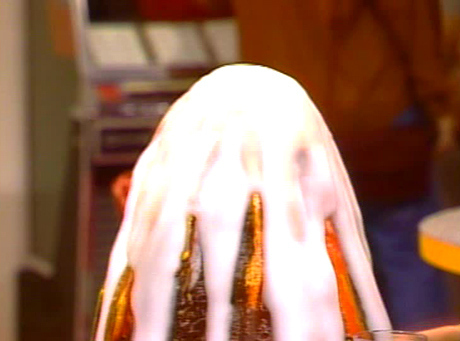
ScienceFairFacials.com
There’s only four days until their projects are due, and Zack’s been letting Screech do all the work on their entry, a giant circuit-board with blinking lights and revolving antennae that exerts control over nearby canaries. But Screech can’t keep his mind on the job, as he’s obsessively pining for Lisa. When she embraces another guy who’s an actual adult and not some shrieking, eight-year-old Harpo Marx, he slinks out of The Max, head down like Charlie Brown.
Mopey, heart-sick Screech is the epitome of that wretched sitcom trope, where moon-eyed losers spend season after season trailing behind the female character they’re desperately smitten with, and usually fated to end up marrying. Ross and Rachel, Niles and Daphne; the ���keep plugging away and you’ll get her in the end��� storyline doubtless encourages stalker behaviour in the sort of guys who believe in the existence of the Friendzone, and feel like they’re owed reciprocation for being a ‘nice guy’. No matter the never-give-uppitude of their quest, they won’t get the happy ending television tells them will come their way if they persist with the emotional blackmail and misguided grand gestures. For the televisual sacks of shit upholding the fallacy, at best, ���no��� just means ���try again next week; maybe you’ll finally break her.��� The many-versed ballad of Screech and Lisa is possibly fiction’s most one-sided, unbelievable ‘will-they-won’t-they?’, to which the answer is a solid ���Of course not. Just look at the fucker.���
Ladies man Zack coaches Screech in the ways of being cool, and tries to break him out of his funk by feeding him chat-up lines to help him land a girl of his very own. But in the hallways of Bayside, the obvious age difference between Dustin Diamond and everyone else just makes it weird, as the pubeless wonder hits on girls who look like they should be in college. Even if he wasn’t half their height, everyone knows highschool girls like creepy older guys with motorcycles; at least they did back in the pre-Bieber days; so Screech gets shot down, time and again. As the audience showers him with patronising awws, a distraught Screech climbs into the nearest locker and shuts himself inside.
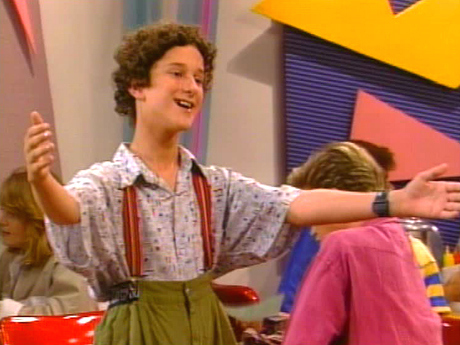
February 17, 2015
So Excited, So Scared — Pinned to the Mat
The following is a sample from my upcoming Kindle book, So Excited, So Scared: The Saved by the Bell Retrospective, which is out next month, and available for pre-order right now. There are chapters like this on each of the other 85 episodes, as well as detailed sections on the history of the show, what happened next, and a bonus chapter about the Lifetime TV movie. More ordering links can be found at the bottom of this post.
…
Pinned to the Mat
���He used to be a jock, and now he’s a joke.���
Though most episodes of SBTB feel like something produced by Old White Dudes, the Dudes that made Pinned to the Mat are perhaps the Oldest and Whitest of the bunch. In the whole run of 86 episodes, there’s only a single show with a credited female writer, and it’s definitely not this one. Maybe my own hippie leanings are clouding my judgement, as I take a barefoot wander through the less-enlightened world of 1989, but there seems to be something inherently archaic about the weird gender issues at play here.
Career week at Bayside has everyone talking about their futures. With each unanimously playing to type, Jessie’s going to be a lawyer, Lisa a fashion designer, Screech an astronaut, and Zack a gameshow host — which is a bit he does throughout the episode, fake interviewing people with a ketchup bottle that he comically covers with his hand when they go off topic — while Kelly aspires to be a wife. Or an actress; but a married one for sure. And she also wants to be mom with lots of kids. Slater’s not bothered about the rest of his life, as he can’t see past his upcoming wrestling match against Valley’s undefeated champion, Melvin Nedick — a surname which possibly doubles as a finishing move. Of course, Zack’s got a scam going, and during a Time-Out, where a busy hallway of extras makes a really bad job of standing still, he explains how he’s bet his own dirtbike against that of Nedick, on Slater to win. Zack doesn’t even own a dirtbike, but he won’t need to, cos Slater’s gonna crush that Valley punk. Incidentally, dirtbikes were a real-life interest of Gosselaar’s, and their inclusion here is the result of the forms all the kids filled in when the series began, listing real-life hobbies that could be used in the show.
In a continuing observation, the young Dustin Diamond is a truly horrendous performer, with terrible timing, unclear diction, and speaking every line like someone who’s phonetically repeating words that have no meaning to him, like a stranded alien. This is possibly why he’s rarely given more than a single line of dialogue at a time, and is mostly kept to pulling stupid faces.
The gang’s barracking of Slater, and how he’s ruining his life by not having a career plan, plays on his mind, inspiring one of those now-familiar fantasy sequences. Set at a class reunion in the future — and we know it’s the future because Max has baby powder in his hair, denoting that he is old — the now-adult gang are introduced one by one. There’s Judge Jessie; Lisa the fashion designer; Captain Screech Powers, space explorer, who literally beams down from Mars; and lastly, Zack, who gets a hero’s welcome as the most successful game show host ever. If you’re wondering what Kelly’s done with her life — Teacher? CEO? Deputy Parks Director?�� then wonder no more, as Zack introduces his wife, Kelly Morris. As a demonstration of her skills, Kelly ‘presents’ a 19 inch CRT television as her gameshow-hosting husband looks on proudly. Dream big, girls.
When Slater enters, potbelly strapped into a leopard skin wrestling outfit, with a Hulk Hogan wig, tash, and voice, they barely remember him. Isn’t that the over the-the-hill loser who’s lost 30 matches in a row? And all because he didn’t didn’t pick a vocation at career day? While that kind of stupid pressure to make very important, arbitrary decisions about your entire life, when you’re barely old enough to sing the low bits in This Jesus Must Die, is still upheld by teachers today; kids, I wouldn’t sweat it. I told my career advisor I was going to be a juggler in the circus, and look at me now; I’m a penniless writer.
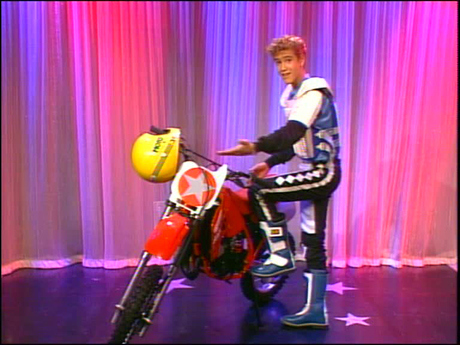
Dirtbike (L), Dirtbag (R)
After his vivid future-flash, a panicked Slater quits the wrestling team, which is bad news for Zack, whose bet with Nedick is at stake. So, the blonde bastard surfs on the wave of sexism and washes up on the shore of another scheme. Inspired by Max’s tale of his own father quitting his job, only to have his mom drape an apron around his neck and show him where the kitchen is, causing him to run screaming from the house and back to work to avoid her stupid, female nagging, Zack whips out his cellular phone. Putting on his best guidance counsellor voice, he convinces Slater’s dad, the Major, to make his son find an after-school activity to replace the wrestling. The only activity Slater’s interested in is girl-watching, so Zack suggests the one place where you’ll find tons of the little madams shaking their tushes; but such a place will take a special kind of guy to be able to handle it.
���Are you man enough,��� asks Zack, ���for… the cooking club?��� It is a hilarious notion, I grant you. A man in the kitchen. But there are girls there; girls who can be ogled and hit on; so Slater takes Zack’s advice and signs up.
���Slater in an apron?��� says Zack, ���He’ll be laughed back into the gym!��� Just to be clear about what’s being sneered at here; the preparation of food. One of the basic tenements of survival as a carbon-based life-form.
The notion of a guy cooking being so comical, and the kitchen exclusively the domain of girls and pooves, is probably mystifying to younger audiences, but when I was a kid, around the time the show was airing, cookery was viewed as an effeminate pursuit. Along with hairdressing, it was a career choice that would give a dad a fatal aneurysm. Even venturing into the kitchen other than to ask your mam how much longer your tea was going to be, you aul’ bitch, or to have a slash in the sink, was tantamount to whipping your trousers down right there in the living room and camply directing another man’s william right up your pipe. Don’t blame Zack for the crimes of the 1980’s, where chefs were presumed to be homosexuals, before they reinvented themselves as terrifying ogre-men pretending to be really, really angry all the time, in the wake of Gordon Ramsay screaming the bricks from the walls just because someone’s flan was pointing north instead of south or some-such other bollocks.
Zack attends the cookery class too, just for the giggles, where a bubbly teacher has them throw away their recipes! She’s a regular Dead Poet’s Society, singing the instructions like jazz and tap-dancing around the room. Maybe the dads were right all along. What do you know, Slater bakes a perfect cake, and the girls, who’ve increasingly shown themselves to drop into fan-wafting vapour fits at any vaguely romantic deed, are positively simpering at how sensitive he is, because he’s baked one fucking cake. Devastated by the failure of his latest plan, Zack calls himself a ���hula hoop.��� Don’t be so hard on yourself, buddy.
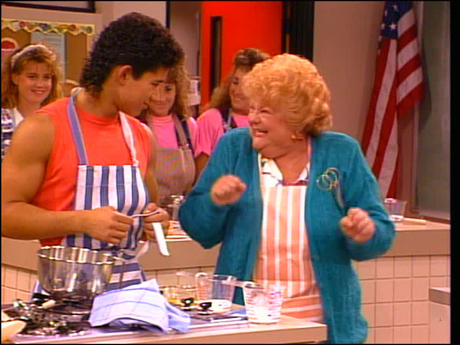
Shortly before jerking a dozen dicks all over his own face
At Zack’s behest, Nedick himself shows up to taunt Slater for being a girly girl cook, in order to reverse-psychology him back into the wrestling match, which makes no sense, as if Slater didn’t show, Nedick would win the match, and the dirtbike, by forfeit. Regardless, Nedick’s needling only further steels Slater’s resolve, and Zack’s forced to stick Screech in a singlet and offer him up as a replacement opponent, hoping it’ll lure Slater out of retirement. No dice, Preppy, and Screech and Nedick limber up at the gym for an inter-school bout that’s perfectly legal, despite there being about a dozen weight classes between them.
Luckily for Screech, Slater shows up at the last second and instantly pins Nedick with a German suplex that’d make Chris Benoit drop his World’s Greatest Dad mug in jealousy. With about thirty seconds to credits, Slater, who’s not only loved cooking, but shown a genuine natural aptitude for it, throws it all away at the last moment for nothing, as ���my quiche blew up and I didn’t care.��� Oh, cool then, back to the status quo. To wrap up the out-of-the-blue ending, everyone suddenly agrees that they’re just kids and shouldn’t worry about careers until later. Zack’s winning bet is also for nothing, as Belding informs him that gambling is banned in school and all he’s won is a detention.
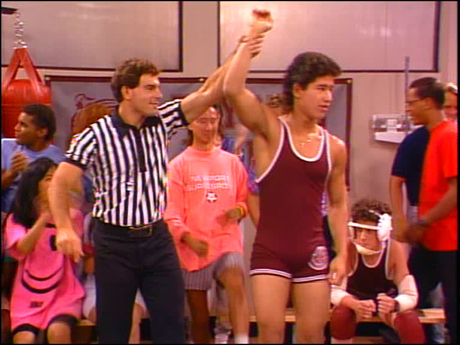
“Congrats on being straight!”
There’s a way better ending hidden away in all of this, had they had Nedick confess to Zack that he didn’t really have a dirtbike either, so they were both betting imaginary dirtbikes with each other. I assumed that’s where it was going, because why the shit would anyone need two dirtbikes?
…
So Excited, So Scared on Amazon.co.uk
So Excited, So Scared on Amazon.com
Amazon���s free Kindle app for phones, tablets, and computers.
January 30, 2015
So Excited, So Scared — available for pre-order now
The Jock. The Brain. The Hustler. The Princess. The Fashionista. The Nerd. Bayside’s iconic six vowed to be friends forever. It wasn’t even true backstage.
So Excited, So Scared delves into the full history of the show and its players, from its unlikely creation and unlikelier success, to what happened when the cameras stopped rolling. Was it a hormonal, dating free-for-all behind the scenes, and was Dustin Diamond really the despised outsider of legend?
The centrepiece of Millard’s unauthorised trip back to Bayside is a comprehensive, show-by-show breakdown of all 86 episodes. Relive the sociopathic scams of Zack Morris, the story of history’s greatest romantic coupling, and memorable guest faces like Maxwell Nerdstrom, Jeff Hunter, and Rod ���call me Rod��� Belding, plus the scattershot continuity of Malibu Sands and Tori Scott; which evolves into full-on quantum theory; in the most complete take on SBTB ever put to print.
With no stone unturned, revisit every classic moment; such as Jessie’s freak-out, the rise and fall of Zack Attack, and No Hope with Dope; and discover how a day-glo, nineties teen sitcom become one of the most culturally influential shows of the last thirty years, changing the entire landscape of entertainment along the way.
This is a book no Tigers-cheering, chair-straddling Saved by the Bell fan can live without, so c’mon, Preppy; don’t be an A.C. Hater.
…
After a few false starts, some kickstarted help from some amazing people, and a lot of months spent thinking and writing about bloody Screech, we are live. So Excited, So Scared: The Saved by the Bell Retrospective is now available for pre-order on Amazon, to be sent to your Kindles/devices on March 16th, when it’s finally released.
For readers of my previous works, So Excited, So Scared is longer than my last four books combined (161,000 words), so if you want a giant helping of Millard, there’s enough here to overdose on. Also, not to parp on my own horn, but it’s definitely the best thing I’ve ever done. To help pass the time between now and March 16th, feel free to spread the word, and of course, head over to Amazon immediately.
So Excited, So Scared on Amazon.co.uk
So Excited, So Scared on Amazon.com
Amazon’s free Kindle app for phones, tablets, and computers.


